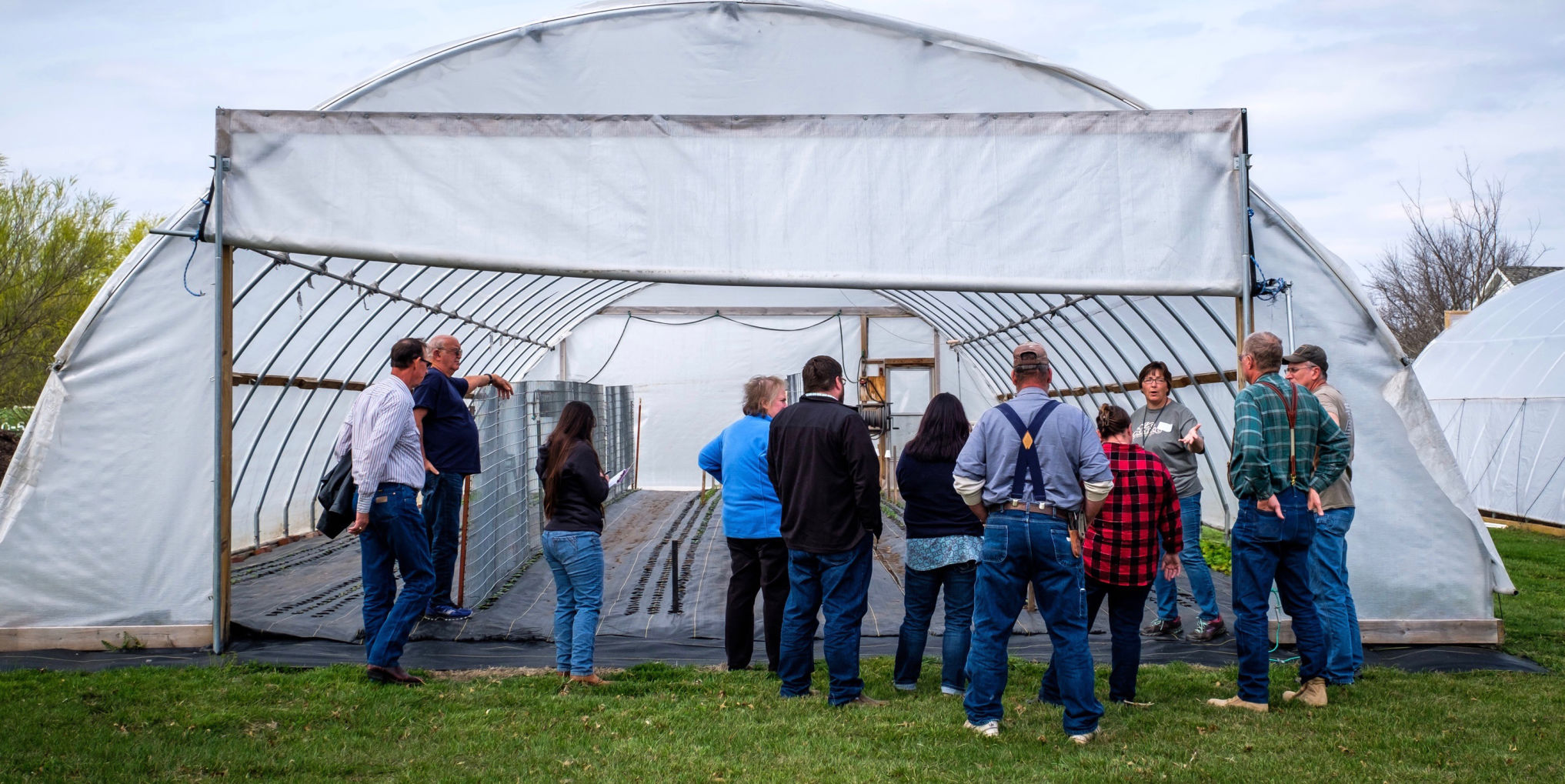Wood mulch works great for growing garlic, not so great for potatoes. Good seed is best. Bad soil just needs improvement. A rototiller is your best tool. Expertise is learned through trial and error.
Mike Schoenecker doesn’t claim to be an expert, but after a lifetime of growing things he knows what works for him. That’s not to say that what works for him will work for others, nor that his way is the only way. Some people prefer plastic ground covers, he prefers mulch. Some people use fertilizers, he prefers well-tilled soil with lots of compost.
“I’m not saying one is better than the other,” he said. “It’s all what you want and how you go about it.”
While Schoenecker’s definition of “specialty” might occasionally border on the esoteric, the tips he presented during the Kansas Rural Center’s Specialty Crops Workshop are applicable to any kind of market farming. The workshop, held recently at the Neosho County Courthouse in Erie, was one of five throughout the state focusing on specialty crop production for beginning and new farmers.
Other speakers included Cary Rivard, extension specialist and director of K-State Research & Extension Center, Olathe; Calvin Parker, owner of Parker’s Greenhouse, Iola; Tammy Klenklen, owner of Oz Country Mercantile and Produce, Erie; Kerri Ebert, Sustainable Agriculture Research and Education; and David Coltrain, current specialty crop grower and the organizer for KRC’s workshops.
Schoenecker, owner of Mike’s Fresh Garden Produce near Chanute, developed his green thumb as a young boy weeding his parents’ garden. He grew vegetables for farmers’ markets for almost 30 years before retiring, and now that he’s retired not much has changed. He grows every kind of vegetable he can think of, and if a customer asks for something different, he’ll grow it, too.
“Specialty crops are what people want,” he said. “Everybody grows tomatoes, but if you grow something nobody else grows, they’ll buy it from you, and more people will want it, too.”
His folksy, homespun advice was both entertaining and informative.
“You can start with crappy soil and build a garden, but it won’t be overnight,” he said. “It can take a year, two years, but it will happen.”
High tunnel exploration
High tunnels enable producers to extend the growing season while maximizing production through intensive planting. Tammy Klenklen, who with her husband farm on five acres on the outskirts of Erie, first heard of high tunnels when she met Parker at a farmers’ market. She was relatively new to farming and had virtually no experience in gardening, nor did her career as a FedEx truck driver leave much time for growing things. Her mother-in-law was an experienced gardener and loved canning, and when she passed away, it fell to Klenklen to continue the practice. To her surprise, she fell in love with canning, and that led her into gardening.
She now owns three high tunnels and sells at the farm and three farmers markets. In addition to specialty crops, Klenklen offers 30 flavors of homemade jellies, raw honey, lip balms, herbs and dried hot pepper powders. Klenklen, who admits to being an expert on trial and error, is in the problem-solving stage, trying to find solutions to some of the nagging problems she’s encountered.
“Last year in the middle of the season I had a lot of challenges, and I got discouraged and burned out,” she said. “I realized I had to work smarter rather than harder.”
Online research led her to Rose Creek Farm in Tennessee, whose owners raise lettuce year-round. After consulting with them, she decided to apply their methods to see if she could grow lettuce in June, July and August. “If he can do it in the South, I can do it in Kansas,” she said.


